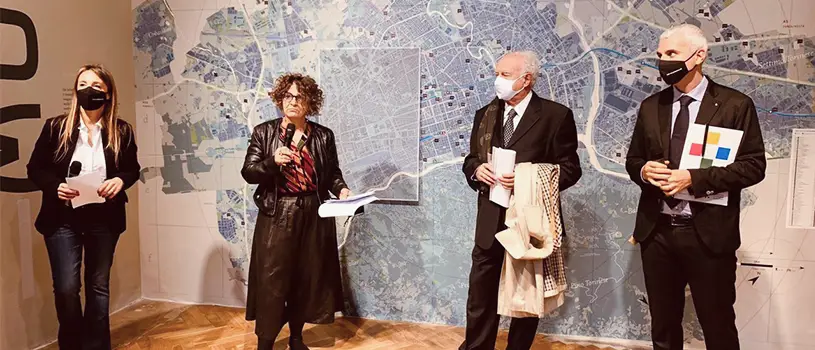The premises at Piazza Palazzo di Città thus consolidate and strengthen its mission as a centre for documentation, dissemination and debate on the city, a place for discussion and information available to citizens, experts and operators.
Fondazione Compagnia di San Paolo has been a part of Urban Lab since it was first created and has allocated over 2.5 million euros to these premises since 2011.
The Foundation has always been interested in the intersections between communities and sustainable development. The decision to pursue Sustainability at every level is irreversible and the themes tackled by Urban Lab are part of this. The city can and must be a community. However, channels are needed to allow people to meet and share. Urban Lab is one of these: it helps us think about the physical city in transformation, to learn more about beautiful and unusual places, to design the future.
“Can a city, even a big city, be a community? The answer is yes – according to Alberto Anfossi, Secretary General of the Foundation, who attended the inauguration event -. How channels like this are needed to allow people to meet, learn and socialise.
Half of the human population now lives in an urban centre and cities therefore present a major opportunity to define a new model of economy, culture and social development, in line with Sustainable Development Goal 11 of the 2030 Agenda, which urges us to build sustainable cities that can become places of participation and development, but also of inclusion and development for people and communities”.
“The Urban Lab, particularly in the renewed form we are celebrating today, is undoubtedly a hub for anyone visiting Turin – continued Anfossi – . The data on visits to the Piedmontese capital, and the major cities of art, show that tourists stay in the city for 36 hours on average. I believe that the first of these 36 hours should be spent here, to understand the potential our city offers: from Falchera to Mirafiori Sud, obviously including the historic centre”.
Urban Lab therefore becomes a driving force for the internationalisation of the city: “It is a place with a specific skill for communicating the city and transmitting knowledge, and as such it undoubtedly contributes to the reputation of Turin and its metropolitan area in Italy, Europe and the world”.[/vc_column_text][/vc_column][/vc_row]
